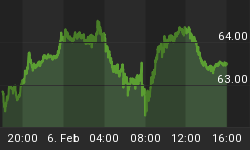Editor's Note: The following article is adapted from Robert Prechter's 2002 best-selling book, Conquer the Crash - You Can Survive and Prosper in a Deflationary Depression.
In addition to this article, visit Elliott Wave International to download the free 15-page report about how to protect yourself, you wealth and your family in this environment. It contains details about what you should do with your pension plan, valuable tips for business owners, insights on handling loans and debt and important warnings against trusting the government to protect you.
The ultimate effect of deflation is to reduce the supply of money and credit. Your goal is to make sure that it doesn't reduce the supply of your money and credit. The ultimate effect of depression is financial ruin. Your goal is to make sure that it doesn't ruin you.
Many investment advisors speak as if making money by investing is easy. It's not. What's easy is losing money, which is exactly what most investors do. They might make money for a while, but they lose eventually. Just keeping what you have over a lifetime of investing can be an achievement. That's what this my book, Conquer the Crash, is designed to help you do, in perhaps the single most difficult financial environment that exists.
Protecting your liquid wealth against a deflationary crash and depression is pretty easy once you know what to do. Protecting your other assets and ensuring your livelihood can be serious challenges. Knowing how to proceed used to be the most difficult part of your task because almost no one writes about the issue. My book remedies that situation.
Preparing To Take the Right Actions
In a crash and depression, we will see stocks going down 90 percent and more, mutual funds collapsing, massive layoffs, high unemployment, corporate and municipal bankruptcies, bank and insurance company failures and ultimately financial and political crises. The average person, who has no inkling of the risks in the financial system, will be shocked that such things could happen, despite the fact that they have happened repeatedly throughout history.
Being unprepared will leave you vulnerable to a major disruption in your life. Being prepared will allow you to make exceptional profits both in the crash and in the ensuing recovery. For now, you should focus on making sure that you do not become a zombie-eyed victim of the depression.
Taking the Right Actions
Countless advisors have touted "stocks only," "gold only," "diversification," a "balanced portfolio" and other end-all solutions to the problem of attending to your investments. These approaches are usually delusions. As I try to make clear in Conquer the Crash, no investment strategy will provide stability forever. You will have to be nimble enough to see major trends coming and make changes accordingly.
The main goal of investing in a crash environment is safety. When deflation looms, almost every investment category becomes associated with immense risks. Most investors have no idea of these risks and will think you are a fool for taking precautions.
Many readers will object to taking certain prudent actions because of the presumed cost. For example: "I can't take a profit; I'll have to pay taxes!" My reply is, if you don't want to pay taxes, well, you'll get your wish; your profit will turn into a loss, and you won't have to pay any taxes. Or they say, "I can't sell my stocks for cash; interest rates are only 2 percent!" My reply is, if you can't abide a 2 percent annual gain, well, you'll get your wish there, too; you'll have a 30 percent annual loss instead. Others say, "I can't cash out my retirement plan; there's a penalty!" I reply, take your money out before there is none to get. Then there is the venerable, "I can't sell now; I'd be taking a loss!" I say no, you are recovering some capital that you can put to better use. My advice always is, make the right move, and the costs will take care of themselves.
If you are preoccupied with pedestrian concerns or blithely going along with mainstream opinions, you need to wake up now, while there is still time, and actively take charge of your personal finances. First you must make your capital, your person and your family safe. Then you can explore options for making money during the crash and especially after it's over.
For more information, Prechter has made five full chapters from his book available for free download.
• What to do with your pension plan
• How to identify a safe haven (a safe place for your family)
• What should you do if you run a business
• Calling in loans and paying off debt
• Should you rely on the government to protect you?















